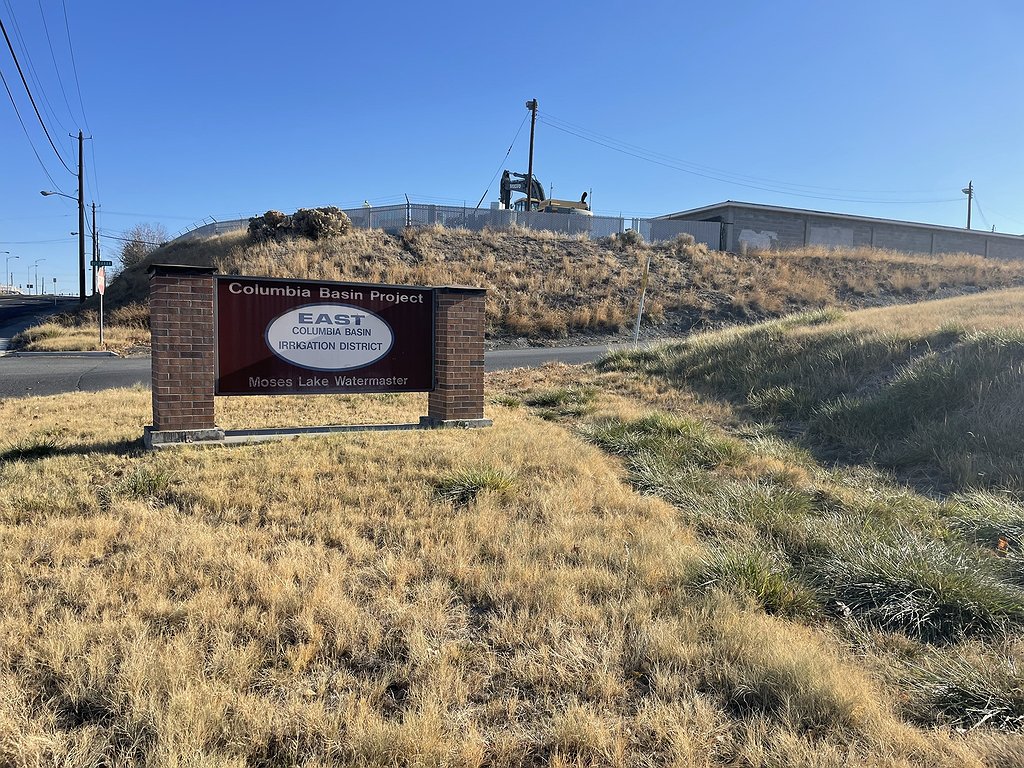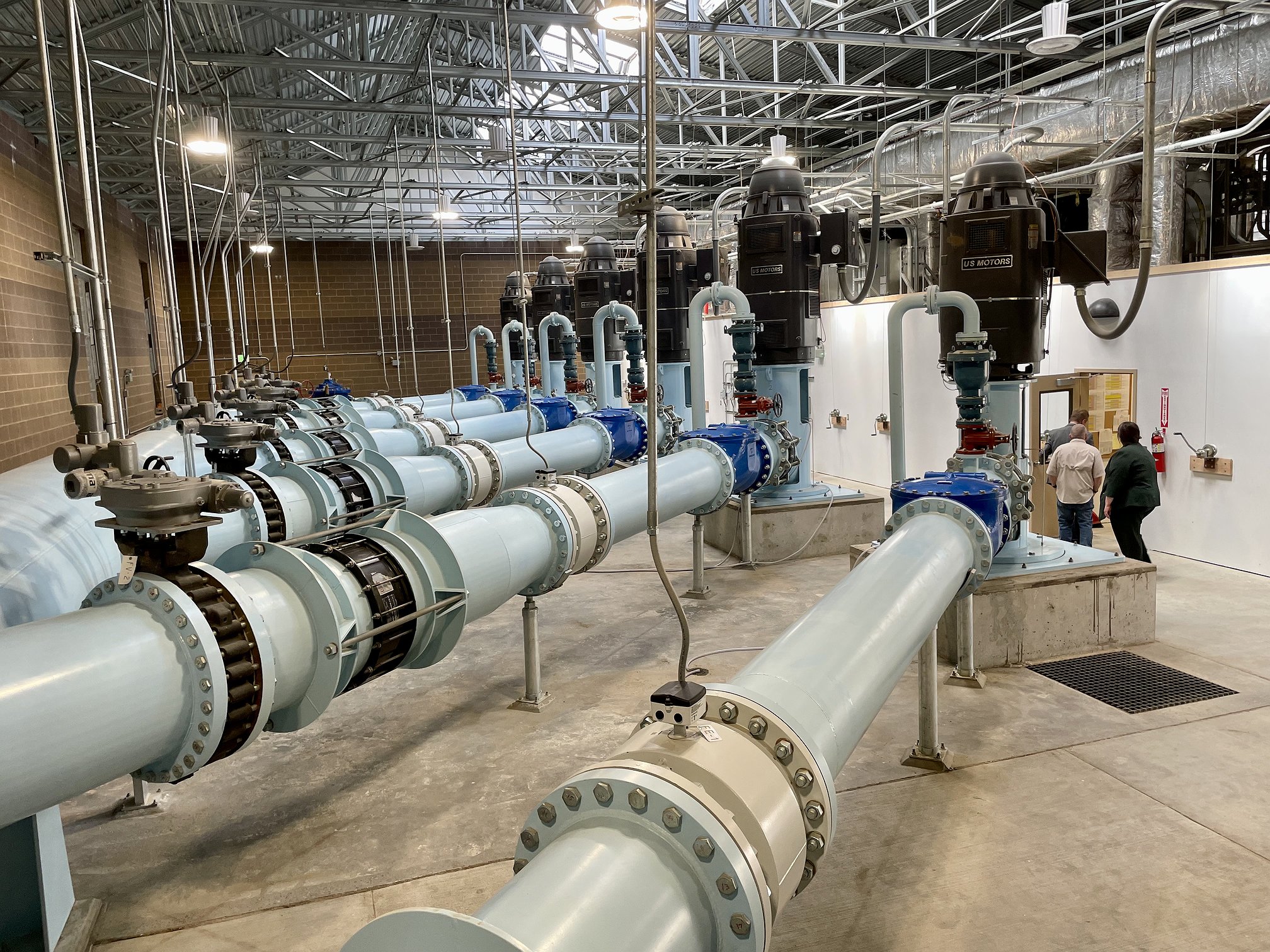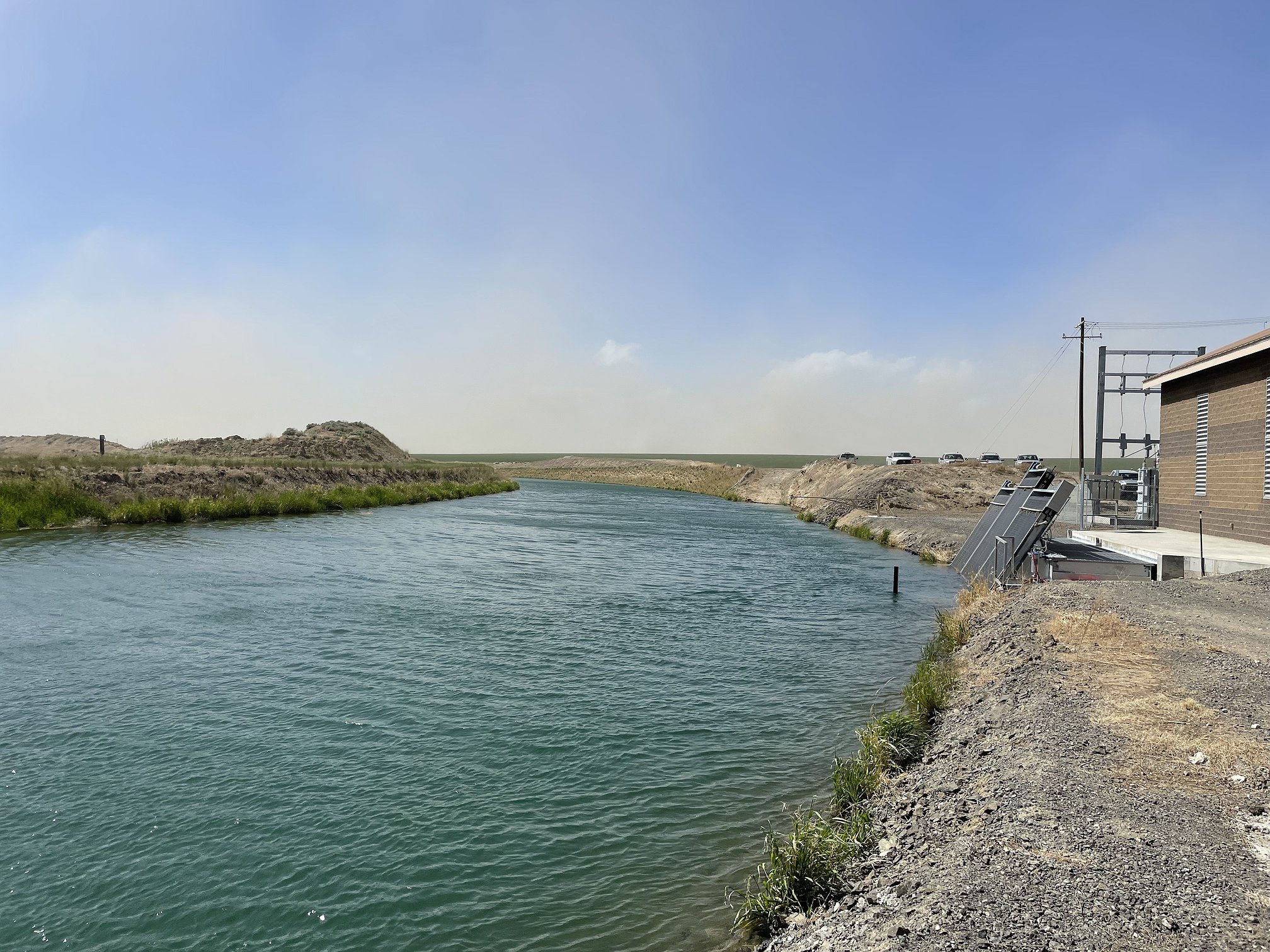ECBID doing well, Odessa project flowing along
OTHELLO — The East Columbia Basin Irrigation District is finally at a point where it has been able to start to implementing infrastructure improvements to its coverage area, mainly for the Odessa Groundwater Replacement Program, according to ECBID Secretary-Manager Craig Simpson.
The district is key in distributing Columbia Basin Project water to its coverage area.
“We're here to deliver water out, to, as they call it, reclaim the arid west,” Simpson said. “And the project, these lands that we deliver to Odessa, were already considered to be part of the project, so it's just that the infrastructure hasn’t been built to deliver to them.”
According to the ECBID website, the Columbia Basin Project was created to deliver water to the Columbia Basin, but has yet to be fully completed, forcing farmers in the Odessa Subarea of the ECBID to turn to an aquifer — Odessa groundwater — that is now in decline. The OGWRP’s goal is to build the infrastructure needed for Odessa farmers to get access to Columbia Basin Project water.
“It's been a topic since the early 2000s. We got some authorization in 2013, and we got most of that about 18,000 acres of water out on the ground and we're working on the next 70,000 acres,” Simpson said. “We had some major milestones that happened in 2021. We completed the first major pumping plant to replace Odessa groundwater and that's called the EL. 47.5 pumping plant and that's a 10,500-acre system, which is pretty substantial as far as irrigation project systems are concerned. As a matter of fact, standalone it would be the 13th largest irrigation district in Washington state.”
As it stands, the ECBID is the largest irrigation district in Washington, with authorization to irrigate 472,000 acres of land, according to the website.
In a Nov. 6 announcement, the ECBID also stated that it received $32.8 million in state funding for the OGWRP and expects to begin construction on one of their Odessa pumps, EL 86.4, in 2024 before the next irrigation season is expected to begin in March 2024.
Simpson also mentioned potential pump systems at canal mileposts 11.8 and 22.1.
“There's a lot going on. We've got two more systems that are closing in on final design, north in the 22.1 lateral and the 11.8, and we're working on the funding for both of those,” he said. “One of them has partial funding already and we're trying to find a little bit more so we can get the first phase of that project going, the 22.1. So things are going, they're exciting right now.”
The ECBID website also noted the district’s partnership with the Natural Resource Conservation Service.
“The ECBID was awarded $1 million through NRCS to develop a Watershed Plan that will design and implement large projects identified in the OGWRP,” said the site. “The District is pursuing a Watershed Plan to access PL-566 grants, to supplement and extend State funding contributions since the cost of the project will approach several hundred million dollars.”
The OGWRP will not prevent the need for the eventual Columbia Basin Project’s completion, however.
“This particular project that we're working on, the Odessa Groundwater Replacement Program, is really only a temporary project though,” Simpson said. “Its function is to serve these lands until (Columbia Basin) Project completion happens, which is a permanent higher elevation canal that gravity feeds to these lands as opposed to digging water out of a lower elevation canal and pumping it up to those lands.”
Simpson spoke about some of the challenges of operating an irrigation district.
“Like everybody else, all the regulatory oversight that's out there is always something that you have to contend with, and that can be really expensive and really time-consuming and sometimes it can end the progress of something you're trying to do,” he said. “We're not any different than anybody else that deals in the natural resource world.”
The ECBID is a contractor for the Bureau of Reclamation, which Simpson said can add to the challenge.
“We operate and maintain a bunch of Bureau of Reclamation facilities,” he said. “That in and of itself has its own challenges because they're not our facilities to make decisions about in a vacuum. We have to make sure that whatever we're doing conforms with our contract and a bunch of federal regulations, so that adds another layer of complexity.”
Despite the challenges, Simpson said the ECBID is in a good position overall.
“Looking at the bright side, being dependent on the Columbia River is a good situation for us, and many of our friends in the Western United States don’t have that same secure water supply,” Simpson said. “So that does come in really handy for our project and our landowners because they don't have to worry about whether or not they're going to have water, it's just a matter of making sure that we keep the facilities in a situation where we can give them a highly reliable water supply, at a really reasonable cost.”
Gabriel Davis may be reached at gdavis@columbiabasinherald.com. Download the Columbia Basin Herald app on iOS and Android.









